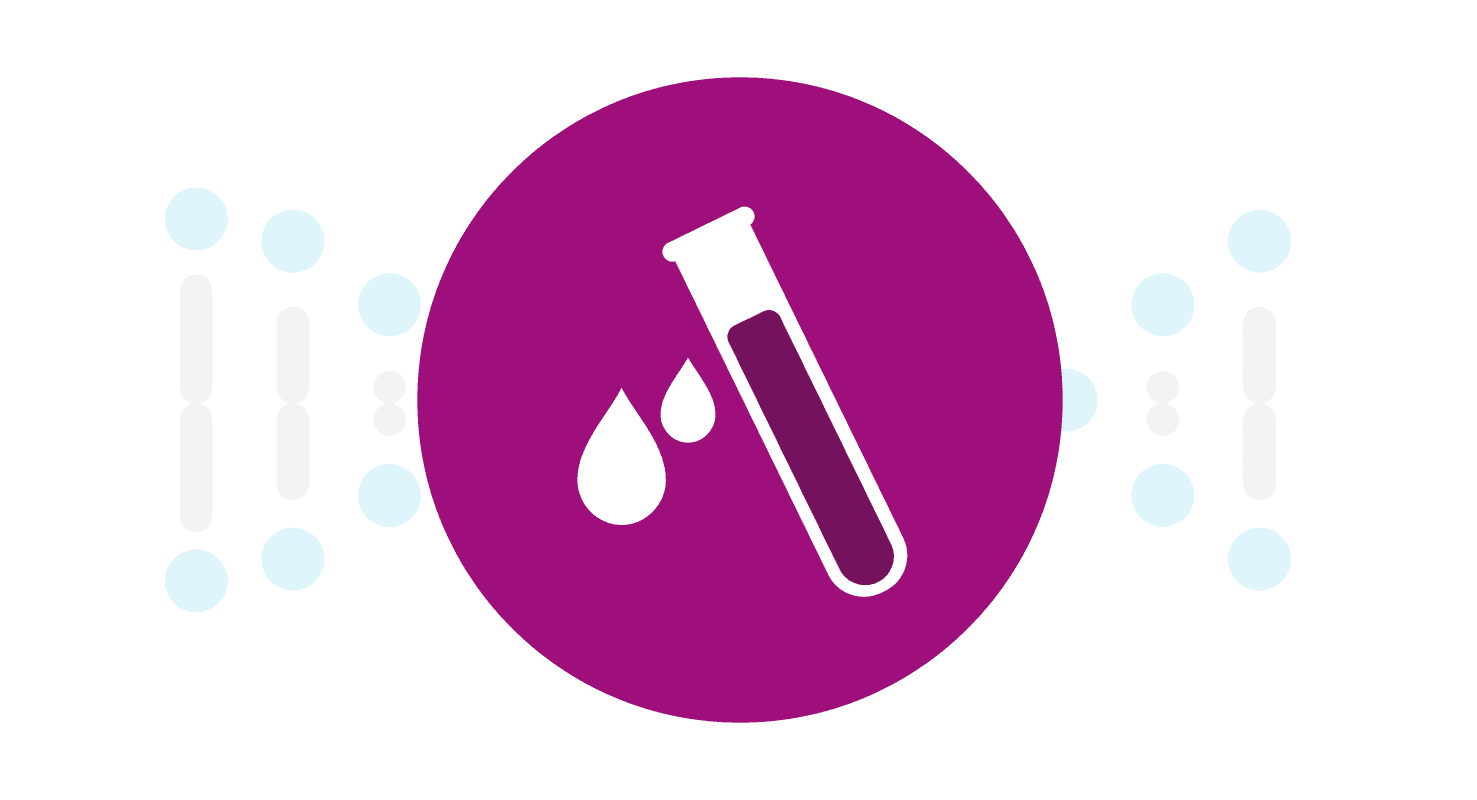This week, 23andMe released the new Hereditary Prostate Cancer (HOXB13-Related) Genetic Health Risk report* for 23andMe+ members. This report is the first and only direct-to-consumer test cleared by the FDA that provides genetic health risk information for HOXB13-related hereditary prostate cancer. Although females† do not have a prostate and are not at risk for prostate cancer, they still have access to this report in order to provide important information they can share with their family members.
About this Report
Prostate cancer is one of the most common types of cancer among males,† with nearly 300,000 cases diagnosed each year in the U.S.[1] It is estimated that about 13 percent of males in the general population will develop prostate cancer during their lifetime.[2]
The Hereditary Prostate Cancer (HOXB13-Related) Genetic Health Risk report* includes one genetic variant called G84E in the HOXB13 gene, which is associated with an increased risk of developing prostate cancer. Males with this variant have a 33–53 percent chance of developing prostate cancer by age 80.[3],[4] People with this variant who develop prostate cancer also tend to do so at an earlier age. Exact risks depend on family history and other factors.
This variant is most common in people of European descent, especially in people of Northern European descent. Up to 1 in 70 people of European descent has the HOXB13 G84E variant.[5] In families of European descent, the G84E variant accounts for up to 5 percent of hereditary prostate cancer. In some Scandinavian countries, this variant accounts for about 22 percent (Finland) and 8 percent (Sweden) of hereditary prostate cancer cases.[6]
Other Factors Also Influence Risk
It’s important to remember that only a small percentage of prostate cancer cases are caused by the genetic variant in this report. Variants in other genes can also increase prostate cancer risk, including variants in the BRCA1 and BRCA2 genes and genes linked to Lynch syndrome. If you have a personal or family history of prostate cancer, it’s important to talk with a healthcare professional about whether comprehensive clinical genetic testing – which looks at many more variants in many different genes – may be right for you.
In addition, note that the majority of prostate cancer cases are not caused by inherited genetic variants. Besides genetics and family history, many other factors can influence a person’s risk for prostate cancer, including age, lifestyle, and ethnicity. For example, some studies have found that males who are overweight or obese are more likely to develop aggressive forms of prostate cancer, and smoking is associated with an increased risk of dying from prostate cancer. In addition, African Americans have a greater risk of developing prostate cancer than people of other ethnicities: In the U.S., more than 1 in 6 African American males develops prostate cancer by the age of 80, compared to about 1 in 8 males of European descent. African Americans are also more likely to develop prostate cancer at an earlier age.
Viewing the Report
23andMe+ members have the option to view their Hereditary Prostate Cancer (HOXB13-Related) Genetic Health Risk report. As with other Genetic Health Risk reports that are considered sensitive, eligible customers must first opt-in to view the report. If they choose to opt in, they will be prompted to complete a short educational tutorial that details some information that is important to know before seeing their results.
Important Limitations of the Report
23andMe is committed to ensuring that our customers understand not just what it may mean to have a risk variant, but also what it means to not have the variant covered in this report. Specifically, not having the variant — or a negative result — does not mean a person is not at risk of developing prostate cancer. Instead, the report highlights the fact that genetics is just one of many risk factors for prostate cancer.
Male customers with the variant in this report should talk to a doctor. Their doctor could then order confirmatory testing and help them find a screening strategy that is right for them. Screening guidelines for prostate cancer vary. However, some guidelines recommend earlier prostate cancer screening in males with the G84E variant in the HOXB13 gene. If female customers have the variant in this report, we suggest sharing this information with their family members, especially their male relatives.
Finally, the Hereditary Prostate Cancer (HOXB13-Related) Genetic Health Risk report is not diagnostic. It is intended for adults only. It is also not a substitute for visits to a healthcare professional for recommended screenings or appropriate follow-up. Any result should be confirmed by an independent genetic test prescribed by your healthcare provider before taking any medical action.
Find Out More
- 23andMe+ members can click here if they wish to view their report. Customers will be directed to update their report preferences and choose whether to opt in to receive the report. Customers will then need to complete an educational tutorial before viewing their report.
- Current 23andMe Health + Ancestry Service customers on the current genotyping chip can receive this report along with 35+ other reports by joining 23andMe+ from within their account. Learn more here.
- Not a 23andMe+ customer yet? Learn more about what 23andMe has to offer here.
†Within this blog post and the Hereditary Prostate Cancer (HOXB13-Related) report, we use the word “male” to refer to people whose birth sex is male and have a prostate, and “female” to refer to people whose birth sex is female and do not have a prostate. We made this decision as a way of highlighting that HOXB13-related cancer risk depends on whether someone has a prostate. However, we recognize that being categorized by birth sex may be an uncomfortable experience for some people, and we do not mean to delegitimize anyone’s gender identity. Learn more about why we made this decision in this help article.
Note:
*The 23andMe PGS test uses qualitative genotyping to detect select clinically relevant variants in the genomic DNA of adults from saliva for the purpose of reporting and interpreting genetic health risks, including the 23andMe PGS Genetic Health Risk Report for Hereditary Prostate Cancer (HOXB13-Related). Your ethnicity may affect the relevance of each report and how your genetic health risk results are interpreted. The test is not intended to diagnose any disease and does not describe a person’s overall risk of developing any type of cancer. It is not intended to tell you anything about your current state of health, or to be used to make medical decisions, including whether or not you should take a medication, how much of a medication you should take, or determine any treatments.
Warnings & Limitations:
The 23andMe PGS Genetic Health Risk Report for Hereditary Prostate Cancer (HOXB13-Related) is indicated for reporting the G84E variant in the HOXB13 gene. The report describes if a person has the G84E variant and if a male is at increased risk for prostate cancer. The variant included in this report is most common in people of European descent, especially in people of Northern European descent. This report does not include variants in other genes linked to hereditary cancers and the absence of variants included in this report does not rule out the presence of other genetic variants that may impact cancer risk. The PGS test is not a substitute for visits to a healthcare professional for recommended screenings or appropriate follow-up. Results should be confirmed by an independent genetic test prescribed by your own healthcare provider before taking any medical action.





